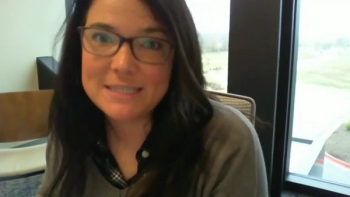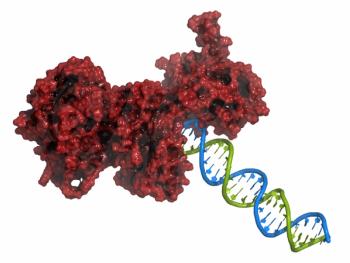
In roughly half of cases assessed, physicians underestimated a patients’ risk, according to multiparametric objective risk-assessment tools.

In roughly half of cases assessed, physicians underestimated a patients’ risk, according to multiparametric objective risk-assessment tools.

This article describes food allergy–related service utilization and identifies factors associated with guideline-informed care among Medicaid-enrolled US children with food allergy.

Highlands Oncology Group has found the most success getting the word out about its lung cancer screening program by directly engaging with primary care physicians (PCPs), said Joanna Thompson of Highlands Oncology Group.

Overall survival from early breast cancer has steadily been increasing; however, simultaneous increases in obesity and obesity-related comorbidities may have contributed to the survival disparity seen between these patient groups.

In the real world, the persistence rate with secukinumab to treat psoriatic arthritis was higher than with ustekinumab.

Updated guidance in 6 key areas of asthma care focus on improving diagnosis, management, and treatment.

Among 11 developed countries, the United States has the highest maternal mortality rate, a relative undersupply of maternity care providers, and no guaranteed access to provider home visits or paid parental leave in the postpartum period, a recent report from The Commonwealth Fund concluded.

Survival after breast cancer is on the rise, thereby emphasizing the importance of discussions that focus on fertility and reproduction among younger survivors.

In today's managed care environment, it is important that contracts between practices and payers include reciprocal language that affords a practice protection over processes, decisions, and changes to the agreement over time, while aligning with its business operation.

The 5-year risk of women dying or developing heart failure following a first severe heart attack is 20% higher compared with men, according to the findings in Circulation.

Clinicians must make sure patients are engaged in their care, stressed Milena Murray, PharmD, MSc, BCIDP, AAHIVP, associate professor at Midwestern University College of Pharmacy.

The Highlands Oncology Group partners with primary care providers to identify patients at high risk of lung cancer so the specialists can do a more in-depth screening, explained Joanna Thompson, multidisciplinary program manager, Highlands Oncology Group.

Mounting evidence is supporting the use of poly ADP-ribose polymerase (PARP) inhibitors in prostate cancer, according to a new study.

The study compared females and males who suffer from migraines and other painful conditions who took part in a national health survey in Spain.

Pfizer will submit an emergency use authorization for their coronavirus disease 2019 (COVID-19) vaccine; WHO panel recommends against remdesivir; CDC urges Americans to stay put during Thanksgiving.

The mortality risk differs for the 3 endothelin receptor antagonists approved to treat pulmonary arterial hypertension (PAH) in elderly patients; however, a direct comparison in a controlled trial is still needed to confirm results.

At its annual meeting, the American College of Rheumatology previewed updates to guidelines for the management of rheumatoid arthritis (RA) and juvenile idiopathic arthritis (JIA).

Artificial intelligence (AI) frees up time for clinicians, noted Anthony L. Loschner, MD, assistant professor and associate program director, Critical Care Fellowship Program, Virginia Tech Carilion School of Medicine.

Although half of US rheumatologists have patients for which nonmedical switching has been suggested, only 35% were likely to switch patients with rheumatoid arthritis doing well on a reference product to a biosimilar.

Living in a neighborhood rife with violent crime and prostitution was linked in this recent study to worse virologic control among pregnant woman living with HIV.

The US Oncology Network reached a major milestone recently in its journey to provide high-quality, value-based care to local communities by enrolling its 100,000th patient in the Centers for Medicare & Medicaid Innovation’s (CMMI) Oncology Care Model (OCM)

Intravenous diuretic treatment of patients with decompensated heart failure can increase urine output, promote weight loss, and improve dyspnea.

In what is believed to be the first study of its kind, investigators found patients with leukemia face a higher risk of suicide than the general public, especially if they had acute myeloid leukemia.

What is feasible for one person may be unaffordable for another, said Milena Murray, PharmD, MSc, BCIDP, AAHIVP, associate professor, Midwestern University Chicago College of Pharmacy, who practices at the Northwestern Medicine Infectious Disease Center.

Many patients with acute lymphoblastic leukemia (ALL) who undergo chemotherapy end up back in the hospital within 30 days. A new study points out the reasons and opportunities for prevention.

259 Prospect Plains Rd, Bldg H
Cranbury, NJ 08512
© 2025 MJH Life Sciences®
All rights reserved.
